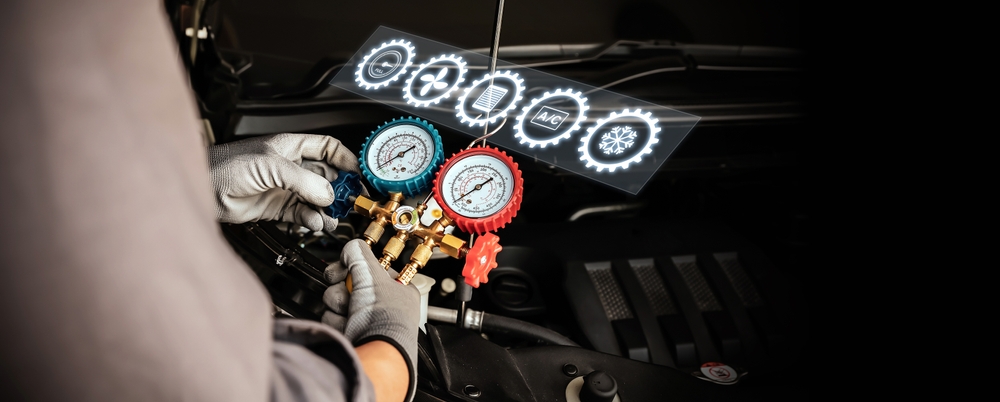Launch Your Career: Automotive Technician Training
Prepare for a hands-on career as an automotive technician with practical training that teaches diagnostics, repairs, and maintenance for modern vehicles. Explore certificate, associate, apprenticeship, and manufacturer courses, plus costs, program lengths, and certifications. Gain in-demand skills in hybrid and electric drivetrains and ADAS to improve job prospects and earning potential.

Overview
Training to become an automotive technician combines classroom theory with practical shop experience to equip students for work on today’s sophisticated vehicles. Programs teach mechanical fundamentals, electrical systems, safety practices, and the latest technologies—such as hybrid/electric powertrains and advanced driver-assistance systems—so graduates can pursue roles at dealerships, independent garages, fleet shops, or launch their own service businesses.
Core Topics and Skills
Most automotive training programs dive into the following core areas:
- Engine systems and performance: Fundamentals of internal combustion, fuel delivery and injection, ignition timing, and techniques for improving engine performance and efficiency.
- Electrical and electronic systems: Charging and starting systems, wiring and connectors, sensors, actuators, and vehicle control modules that underpin modern diagnostics.
- Brake systems: Conventional hydraulic brakes, anti-lock braking systems (ABS), and methods for troubleshooting brake-related faults.
- Steering and suspension: Wheel alignment, shock absorbers, steering linkages, and components that affect ride quality and handling.
- Transmission and drivetrain: Operation and repair of manual and automatic transmissions, clutch systems, differentials, and driveline components.
- Heating, ventilation, and air conditioning (HVAC): Climate-control fundamentals, refrigerant handling, and HVAC diagnostics and repair practices.
- Diagnostics and troubleshooting: Use of scan tools, oscilloscopes, smoke testers, and structured problem-solving processes to isolate faults.
- Safety procedures and regulations: Proper shop safety protocols, personal protective equipment, and regulatory compliance for a safe work environment.
Because the vehicle fleet is changing, many curricula now include modules on hybrid and electric vehicles and high-voltage safety to prepare technicians for cleaner transportation technologies.
Typical Program Durations
Training length varies with the credential and depth of study:
- Certificate programs: Generally 6 to 12 months. These accelerated tracks aim to prepare students for entry-level positions quickly.
- Associate degree programs: About two years, combining technical coursework with general education classes for a broader foundation.
- Apprenticeships: Often span 2 to 5 years, mixing paid, on-the-job learning with classroom instruction and mentorship.
- Manufacturer-specific training: Short, targeted courses ranging from a few weeks to several months that teach brand-specific diagnostics, systems, and repair methods.
Choosing between these depends on whether you want rapid entry into the trade, a more comprehensive education, or specialized manufacturer expertise.
Where to Find Programs
Automotive education is offered through multiple channels:
- Vocational and technical schools
- Community colleges
- Universities with automotive technology programs
- Apprenticeship programs run by unions or large employers
- Automaker-sponsored training centers at dealers or factory campuses
- Online and blended-learning options, often paired with hands-on labs
When comparing programs, evaluate accreditation status, the condition of shop facilities and tools, instructor experience, job placement rates, and whether the curriculum covers modern systems such as EV powertrains and ADAS calibration.
Career Paths and Job Market
Trained technicians are needed across many settings: dealership service departments, independent repair shops, fleet maintenance for delivery or municipal vehicles, parts retailers with service offerings, government inspection agencies, and self-employment running a repair shop or mobile service. As vehicles incorporate more electronics and advanced safety systems, demand for skilled technicians remains steady. Specializing in hybrid/electric vehicles, ADAS, and advanced diagnostics can lead to higher wages and stronger job security.
Costs and Financial Considerations
Program expenses depend on the school, credential, and location. Typical ranges include:
- Certificate programs at community colleges or trade schools: about $5,000 to $10,000.
- Associate degrees at technical institutes or community colleges: roughly $15,000 to $30,000.
- Apprenticeships: usually low to no tuition, with paid employment while you learn.
- Manufacturer training courses: commonly $1,000 to $5,000 per class, depending on the automaker and course length.
- Online continuing-education courses: often between $500 and $2,000 per course.
These figures are estimates and will vary. Look into local tuition rates, financial aid, scholarships, employer-sponsored training, and apprenticeship opportunities to determine actual costs for your situation.
Key Certifications to Consider
Certifications validate skills and can increase employability and pay. Important credentials include:
- ASE certifications: Widely recognized credentials available in multiple specialty areas across automotive service.
- Manufacturer-specific certifications: Training and credentials that demonstrate proficiency on particular automaker systems.
- EPA Section 609 certification: Required for technicians who handle refrigerants in automotive air-conditioning systems.
- MACS certification: Focuses specifically on automotive climate-control service and best practices.
Ongoing education is critical. New vehicle platforms and software-driven systems mean technicians must refresh and expand skills regularly to remain competitive.
Final Notes
Pursuing automotive technician training can lead to a hands-on, stable career with options for specialization and advancement. Whether you opt for a short certificate, a two-year associate degree, an apprenticeship, or manufacturer-specific instruction, prioritize programs that balance sound theory with real-world shop time. Earning relevant certifications and developing expertise in hybrid/electric drivetrains, ADAS, and electronic diagnostics will position you well as the automotive industry continues to evolve.






